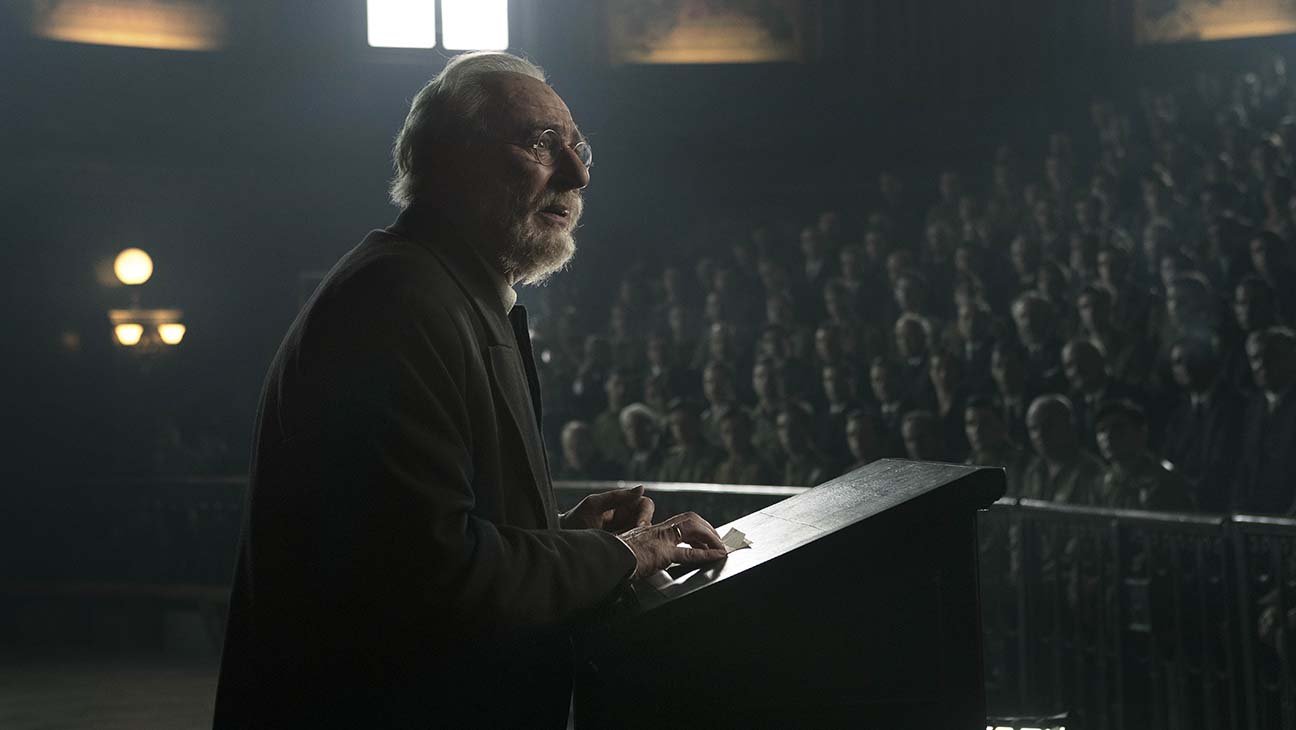“Drain the swamp”. “Taking back control”. Or, in the case of Alejandro Amenábar’s 2019 release While at War: “Long live death”. Amenábar searingly paints a sobering and sturdy (true) story of the tactics utilised at the onset of the Spanish Civil War to quash and forcefully remove rebellion opposition through propaganda and violence, and demonstrates that such brutal measures only prolong suffering, failing to convince anyone.
In part a loose biography of award-winning academic writer Miguel de Unamuno, but more closely a slow-paced costume drama, the film charts the Spanish military coup of July 1936. At the same time, While At War reflects a synchronous sequence as a putrid knot tightens through a reflection of contemporary correlations between Franco and present politicians: different men, same words.
A priest, a leftist, and a university dean meet for coffee – just as they do every day. But this day is different; there’s tension in the air, boots on the ground, and blood in the square. In the southwestern city of Salamanca, general Francisco Franco is making a powerplay for control of Spain from the republic. At first, Miguel, a world-renowned author and respected dean, sees the uprising as a return of order, even if he disagrees with the methodology. But gradually, as his companions begin to vanish, and the tactics grow more aggressive, Miguel struggles to maintain composure, questioning himself and his passive ideals.
The success of the film sits at the knees of Karra Elejalde‘s conviction of performance, holding together the melodramatic aspects and broad strokes of historical storytelling. Arrogant, suave but understandably accomplished and proud, Elejalde captures this esteemed position with a quiet conviction throughout, bursting forth with appropriate emotion when required. His chemistry with friends and foes (it’s often difficult to tell which is which) is magnetic, whether it is an aggressive friendly competition against Carlos Serrano-Clark with Salvador’s leftist views or a stand-off with the patient, collected and unnerving Franco.
The measured, inner performance of Santi Prego amongst a brood of bellowing howling men is petrifying as the film advances. Seldom raising his voice, the raging fire behind Franco’s eyes marks him as a man set on personal and familial success; a man who will torch the nation to achieve an ambition is troubling in a film where our other antagonists skirt the edges of obscene and cartoonish.
Lavish on multiple levels of design, Sonia Grande captures the preening extravagance of Fascists of the era, draped in their military paraphernalia. Endless rows of insignia-toting soldiers and boys line the streets of Salamanca, the uniformity and distinct colour patterns harsh against the sandstone and pastels of the Spanish sun. No one struts their peacock-esque stance quite like Millán Astray: the cripple, the military hero and master of propaganda played by Eduard Fernández. Álex Catalán’s cinematography manages to capture the intensity of conversation, narrowing the focus to force audiences into uncomfortable situations.
While at War takes a sobering and at times bracing manner in communicating the events of the Spanish Civil War. Some watchers may argue that the film doesn’t go far enough to lean into the devastation of Franco’s rise, while others may find discomfort in how open the film is to demonstrate both sides of the conflict, falling victim to the same indecisiveness Miguel did in reality. But what While At War undoubtedly achieves is conveying a sense of sober storytelling.
Screening as part of Edinburgh Spanish Film Festival 2021
